February 14th, 2021
Consider this ice breaker as you gather for the Spotlight.
On a scale of 1-10, what rating would you give your most recent photo ID picture?
On a scale of 1-10, what rating would you give your most recent photo ID picture?

Focus 2 | Love, Envisioned
Now that you've answered the icebreaker question, here's another question, this one about identification.
See what this Spotlight—and series—is focused on.
Tap on the words "Focus 2" in the image below to read this Spotlight's summary.
Tap on the words "Focus 2" in the image below to read this Spotlight's summary.
Watch the relationship between sheep and shepherd.
In John 10, Jesus talks about himself as a shepherd and his followers as sheep.
You’ll see the whole section later, but to cherry-pick two concepts, he says:
I am the good shepherd; I know my sheep and my sheep know me— But they will never follow a stranger; in fact, they will run away from him because they do not recognize a stranger’s voice.
This really happens with sheep. Watch—see for yourself:
In John 10, Jesus talks about himself as a shepherd and his followers as sheep.
You’ll see the whole section later, but to cherry-pick two concepts, he says:
I am the good shepherd; I know my sheep and my sheep know me— But they will never follow a stranger; in fact, they will run away from him because they do not recognize a stranger’s voice.
This really happens with sheep. Watch—see for yourself:
This only works if two things are true:
It’s odd, and somewhat anachronistic, to talk about shepherding today. You very likely don’t know many, if any, shepherds. Nevertheless, it’s worth it. It’s hard to find another metaphor that does as well at capturing the loving, caring relationship God wants for you.
- The shepherd is faithful and leads the sheep on a regular basis.
- The sheep listen and, when they follow, they find that the shepherd does what is best for them.
It’s odd, and somewhat anachronistic, to talk about shepherding today. You very likely don’t know many, if any, shepherds. Nevertheless, it’s worth it. It’s hard to find another metaphor that does as well at capturing the loving, caring relationship God wants for you.

Immerse yourself in the shepherd metaphor.
God makes extensive use of the shepherd concept in the Bible, and this presentation gives an overview designed to help make your understanding of the big idea here a little more real. Use the arrows to navigate through the experience in the frame below (and be sure to enable audio).
God makes extensive use of the shepherd concept in the Bible, and this presentation gives an overview designed to help make your understanding of the big idea here a little more real. Use the arrows to navigate through the experience in the frame below (and be sure to enable audio).
Let’s explore this a little further.
You have that shepherd—the one who stands for and encapsulates everything in all the verses you heard above. In fact, he’s even better than all that.
You, on the other hand, are a pretty typical sheep because instead of wisely sticking with that shepherd, you wander away from him.
And when sheep wander away from their shepherd, it’s going to hurt.
Consider how a sheep feels when it realizes it has wandered from the shepherd for each of the categorical examples below. Feelings of fear, insecurity, and helplessness, thoughts of frustration or depression—all of these factor into the way the sheep reacts.

When we wander, it will cause fear, insecurity, and helplessness, thoughts of frustration or depression...in race relations.
Name ways that separation from the love and safety of the shepherd leads to a breakdown between cultures.

It’s going to cause fear, insecurity, and helplessness, thoughts of frustration or depression…
in governmental relations.
Name a way that separation from the love and safety of the shepherd leads to a breakdown between citizens and government.

It’s going to cause fear, insecurity, and helplessness, thoughts of frustration or depression…
in marriage relations.
Name a way that separation from the love and safety of the shepherd leads to a breakdown between spouses.

It’s going to cause fear, insecurity, and helplessness, thoughts of frustration or depression…
in familial relations.
Name a way that separation from the love and safety of the shepherd leads to a breakdown between generations in a family.

It’s going to cause fear, insecurity, and helplessness, thoughts of frustration or depression…
in financial relations.
Name a way that separation from the love and safety of the shepherd leads to a breakdown in the way people use money.
But when sheep wander away from the shepherd, it doesn’t only hurt the sheep. When sheep wander away from the shepherd, it’s also going to hurt the shepherd—if the shepherd is a good shepherd.
I am the good shepherd. The good shepherd lays down his life for the sheep.
John 10:10
You have that shepherd—the one who stands for and encapsulates everything in all the verses you heard above. In fact, he’s even better than all that.
You, on the other hand, are a pretty typical sheep because instead of wisely sticking with that shepherd, you wander away from him.
And when sheep wander away from their shepherd, it’s going to hurt.
Consider how a sheep feels when it realizes it has wandered from the shepherd for each of the categorical examples below. Feelings of fear, insecurity, and helplessness, thoughts of frustration or depression—all of these factor into the way the sheep reacts.

When we wander, it will cause fear, insecurity, and helplessness, thoughts of frustration or depression...in race relations.
Name ways that separation from the love and safety of the shepherd leads to a breakdown between cultures.

It’s going to cause fear, insecurity, and helplessness, thoughts of frustration or depression…
in governmental relations.
Name a way that separation from the love and safety of the shepherd leads to a breakdown between citizens and government.

It’s going to cause fear, insecurity, and helplessness, thoughts of frustration or depression…
in marriage relations.
Name a way that separation from the love and safety of the shepherd leads to a breakdown between spouses.

It’s going to cause fear, insecurity, and helplessness, thoughts of frustration or depression…
in familial relations.
Name a way that separation from the love and safety of the shepherd leads to a breakdown between generations in a family.

It’s going to cause fear, insecurity, and helplessness, thoughts of frustration or depression…
in financial relations.
Name a way that separation from the love and safety of the shepherd leads to a breakdown in the way people use money.
But when sheep wander away from the shepherd, it doesn’t only hurt the sheep. When sheep wander away from the shepherd, it’s also going to hurt the shepherd—if the shepherd is a good shepherd.
I am the good shepherd. The good shepherd lays down his life for the sheep.
John 10:10
Listen and sing along to this song.
Lyrics for Known & Loved by Joel Ansett
You’re in a place you think you know,
surrounded but you feel alone.
You have a place to rest your head
but not a home.
Feels like you lost yourself again—
sit in the silence of a friend.
When you are fully known and loved
you have a home.
The burden you choose to bare:
keeping yourself from those who care.
Problems and pride play hide and seek—
you’re unaware.
All of the things you keep concealed,
one day, are bound to be revealed.
We paint a picture of ourselves that isn’t real.
Feels like you lost yourself again—
sit in the silence of a friend
When you are fully known and loved
you have a home.
In time, may you find
peace of mind with me my friend.
You’re in a place you think you know,
surrounded but you feel alone.
You have a place to rest your head
but not a home.
Feels like you lost yourself again—
sit in the silence of a friend.
When you are fully known and loved
you have a home.
The burden you choose to bare:
keeping yourself from those who care.
Problems and pride play hide and seek—
you’re unaware.
All of the things you keep concealed,
one day, are bound to be revealed.
We paint a picture of ourselves that isn’t real.
Feels like you lost yourself again—
sit in the silence of a friend
When you are fully known and loved
you have a home.
In time, may you find
peace of mind with me my friend.
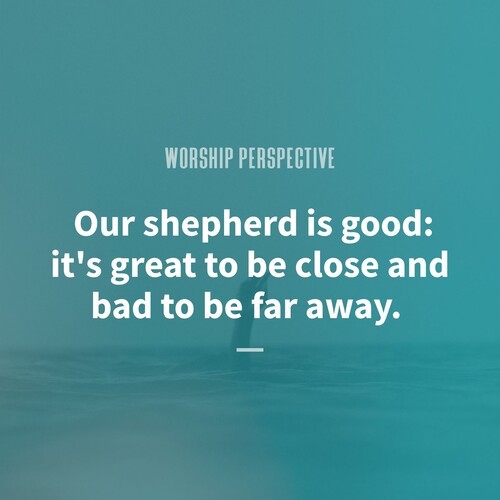
Kids, watch this video about a lost sheep.
What does love look like? Jesus said that it looks like a good shepherd laying down his life for a sheep. If the good shepherd laying his life down for his sheep is the “photo ID” of love—that’s great. But what is love, really?
The shepherd/sheep idea is a good illustration (or picture) of love, but it isn’t the love itself. Love is not the good shepherd any more than the photo on your ID is you. These are tools meant to help you recognize the real thing.
The shepherd/sheep idea is a good illustration (or picture) of love, but it isn’t the love itself. Love is not the good shepherd any more than the photo on your ID is you. These are tools meant to help you recognize the real thing.

The picture of the relationship between a shepherd and a sheep is powerful because it says so much.
In his letter to the young, persecuted church, John the disciple of Jesus tried to write out what love is—that is, he tried to translate that picture into its words. Let’s take a look at 339 of them. (So, not a thousand but a good start…)
Let’s excavate 1 John 4:7–21, and underneath it, we will find a definition of love.
A) Read the slide below. Then answer the following questions based on the slide.
(You can click/tap on the slide's numbers for the respective answers AFTER you’ve attempted to answer the following questions.)
- Count how many times the word “love” is said in the section.
- This section doesn’t exactly define what love is, but it does show what love looks like. What does love look like, according to these verses?
- Going a little further in this section, John says that if we find love, what else (or who else) will we find?
B) Read the slide below. Then answer the following questions based on the slide.
(You can click/tap on the slide's numbers for the respective answers AFTER you’ve attempted to answer the following questions.)
(You can click/tap on the slide's numbers for the respective answers AFTER you’ve attempted to answer the following questions.)
- The phrase “live in” comes up here (and it was also in vs 12 above.) While we commonly speak of living in a home, to “live in” someone is an odd turn of phrase. What do you think it means?
- Vs 16 says that “we know and rely” on the love God has for us. That’s at least part of what it looks like for you to “live in” God. What does it look like for God to “live in” you?
- According to these verses, what is the single basic thing that has to happen for God to live in someone and that person to live in God?
C) Read the slide below. Then answer the following questions based on the slide.
(You can click/tap on the slide's numbers for the respective answers AFTER you’ve attempted to answer the following questions.)
(You can click/tap on the slide's numbers for the respective answers AFTER you’ve attempted to answer the following questions.)
- This section starts with a very simple definition of love. What is it?
- Jesus has a mutually interdependent relationship with God the Father as you see it described in the first verse here. John then says that the same love Jesus and God the Father shared is “made complete in us” because “we are like Jesus.” How does verse 18 explain what Jesus is like?
- This one may be a bit personal, so if you’re in a group you’re not obligated to share, but… How could trust in the “perfect love” of God help to “drive out fear” of punishment you are currently feeling?
D) Read the slide below. Then answer the following questions based on the slide.
(You can click/tap on the slide's numbers for the respective answers AFTER you’ve attempted to answer the following questions.)
(You can click/tap on the slide's numbers for the respective answers AFTER you’ve attempted to answer the following questions.)
- This section’s basic idea is that love being freely received must lead to love being freely given. Another way to say this is to say that if love is not being freely given by someone, that person must not be freely receiving love, either. How can this affect they way you approach people who aren’t showing very much love?
- John brings up things you can see (your brothers and sisters) and things you can’t see (God) in these verses. He then says that if you don’t love people, you must not be loving God. In essence, he’s restating something that was said earlier. What was said in a previous slide that John is rephrasing here?
- Explain this statement: In many ways, this section is simply about being honest.
So, with all that said, if you had to define it now:
What is love?
What is love?
Love: a thousand pictures in a single word.
John’s words (as seen above) are the continuation of the love God has always emphasized. See how in this video from the Bible Project that explains the meaning of the Hebrew word “ahavah” which is translated “love.”
John’s words (as seen above) are the continuation of the love God has always emphasized. See how in this video from the Bible Project that explains the meaning of the Hebrew word “ahavah” which is translated “love.”
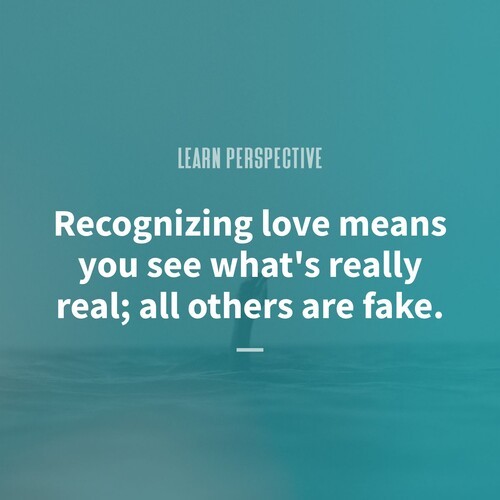
Let's consider why we're partnering with the Modern Widows Club—a national non-profit with a Seattle chapter, devoted to empowering widows to lean into life.


Let’s see—in love—a widow’s plight.
First, open this article about the difficulties widows and widowers face in life.
+ READ ARTICLE
First, open this article about the difficulties widows and widowers face in life.
+ READ ARTICLE

Ponder and discuss the follow-up questions (after reading the article).
- The article states that “the numbers of people who have experienced widowhood are greater than the sums of current widows and widowers.” How is this true?
- How does the article show statistically that women are disproportionately experiencing widowhood?
- Why are women more likely to experience widowhood than men, according to the article?
- Name four areas of difficulties that widows face.
- What can people do to be better prepared for widowhood?
Feel free to submit a prayer request by filling out the below form.
(If you choose to make your request public, you'll see it display in the Current at the end of the Spotlight along with anyone else who did the same.)
(If you choose to make your request public, you'll see it display in the Current at the end of the Spotlight along with anyone else who did the same.)
Pray through your requests—together—as a group.
After submitting your requests in the above form, take some time to share with your group whatever requests the group might have for this week.
After submitting your requests in the above form, take some time to share with your group whatever requests the group might have for this week.
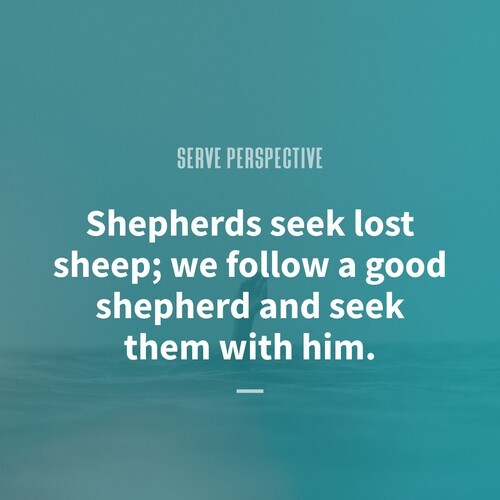
Pray through this video.
The King of Love My Shepherd Is takes Psalm 23 and turns it into a prayer. Pray along with it here as you thank God for being the shepherd who loves.
Just to emphasize the goal here: we urge you not to simply listen and meditate to the beauty of the music and poetry, but to earnestly and actively pray about each line as it is sung.
The King of Love My Shepherd Is takes Psalm 23 and turns it into a prayer. Pray along with it here as you thank God for being the shepherd who loves.
Just to emphasize the goal here: we urge you not to simply listen and meditate to the beauty of the music and poetry, but to earnestly and actively pray about each line as it is sung.
Sing along with (or listen to) this song to close out this Spotlight.
Feel free to sing along or simply listen. Do what makes you comfortable—but do whatever helps you focus on the song's meaning best.
Feel free to sing along or simply listen. Do what makes you comfortable—but do whatever helps you focus on the song's meaning best.
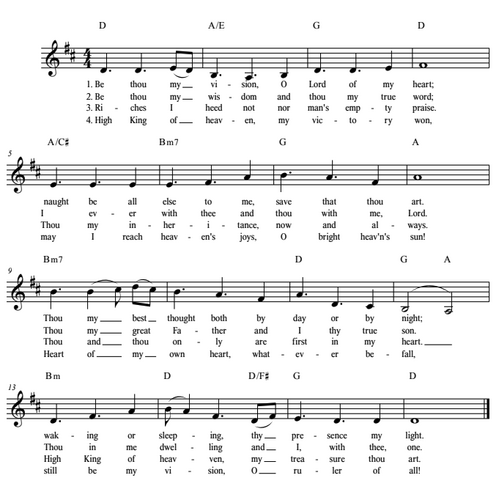
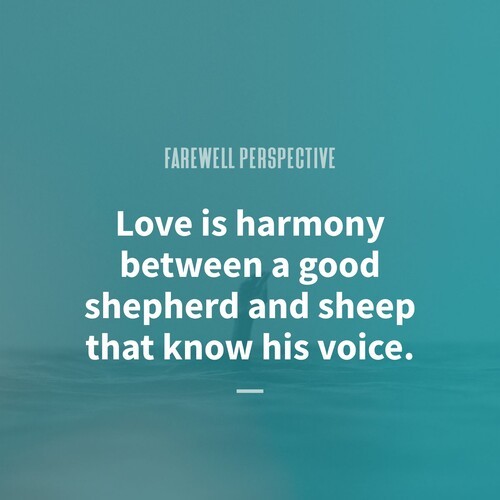
Let's wrap things up by taking a look at what's Current at Illume.
Tap on the buttons in the frame below to see what’s currently happening at Illume—information on everything from current and upcoming online content to live events and opportunities to serve in the community can all be found here.
Tap on the buttons in the frame below to see what’s currently happening at Illume—information on everything from current and upcoming online content to live events and opportunities to serve in the community can all be found here.
Posted in On Letting Love In

No Comments